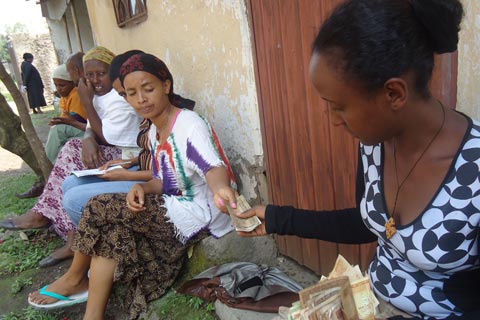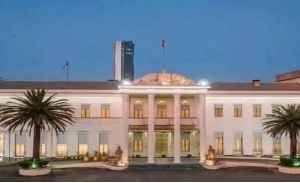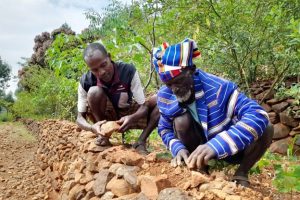
When it is said Ethiopia is a unique country, it is not simply to say it. Rather, it is with a number of reasons.
Ethiopia is a country endowed with innumerable blessings. It is the origin of human beings and an ancient cradle of civilizations blessed with its magnificent scenery and diverse landscape, distinctive flora and fauna, incredibly and fascinating history, traditional and cultural values, its unique alphabets and calendar, diverse music and musical instruments, traditional costumes, cultural food and drinks, including its number one world-renowned coffee, and much more.
As Adam Hickman, a traveller portraits the country and shares his experiences in Ethiopia with his readers, trekking in Ethiopia, a country steeped in ancient history and with unique geology and wildlife. Ethiopia is a country with a fascinating history, the castles of Gondar and the island monasteries of Lake Tana are completely unique to this area. It is also often referred to as the ‘cradle of mankind’ with some of the oldest human remains ever discovered found in Ethiopia.
True Ethiopia, without exaggeration, is a unique country with all its endowments. Apart from its natural and historic resources, the social chattels that are created by its people to help each other at the time of both good and bad times make the country land of love, solidarity, togetherness and people living together with the sense of family.
Among these well-established societal values that are established to help each other good and bad times of and cherished by the communities irrespective of any differences, Iqub and Edir are
As Professor Ayele Bekerie wrote in an article titled ‘The Paradox of Africa’s Poverty: The Role of Indigenous Knowledge, Traditional Practices and Local Institutions’, Iqub is an association established by a small group of people in order to provide substantial rotating funding for members in order to improve their lives and living conditions, while Idir is an association established among neighbors or workers to raise funds that will be used during emergencies, such as death within these groups and their families.
As to him, Iqub and Idir can be characterized as traditional financial associations. While Idir is a long-term association, Iqub can be temporary or permanent, depending on the needs of the members.
These two socio-economic traditions are informal, bottom-up, and widely practiced among Ethiopians. It can also be argued that they are national phenomena that are embraced by Ethiopians across linguistic, religious, or ethnic backgrounds. Idir, in fact, is becoming a critical source of social stability at a time when deaths from HIV and AIDS or other illnesses are increasing at an alarming rate. Thanks to Idir, the victims of HIV and AIDS are at least guaranteed respectful burial and their loved ones are given moral and some material support to overcome their loss.
These dynamic, people-oriented associations are often either ignored or not given proper attention by the state or the educated elite with regard to social or economic development. In fact, it is because of such traditional associations that our society remains stable and cohesive. Iqub and Idir serve the needs of the society in a sustainable way and they are based on available human or material resources.
For instance, Iqub enables a family, particularly a poor family, to obtain the necessary funding for activities such as weddings, building a house, or starting a micro-business. Iqub is more flexible and accessible than banks and requires minimal paper work. As a result, people without formal education are not discouraged to join. Moreover, for a small payment each week or month, members of Iqub can keep a steady influx of money to help any member of the group on a rotational basis, he further elaborated.
These remarkable associations are based on local knowledge and practices and ought to be taken into consideration by Ethiopia-centered development plans or activities, he opined.
While these two community-based funding efforts are popular in Ethiopia, in Philadelphia, the Ethiopians, given their numbers and the trans-cultural realities, modified them into Iqub and Idir combined into one, which I like to call IquibinaIdir. The functions of the institutions are lumped together to create a new system. “I am sure that we find similar associations in communities throughout the Ethiopian Diaspora. I have looked at three cases from Philadelphia, where I worked with the Greater Philadelphia Ethiopian Community.”
Referring to his experience in abroad while conducted by Ethiopian Diaspora, Professor Ayele said that, the Idir contribution is much smaller than in the first case, but its purpose is the same. These informal associations guarantee that everyone is taken care of in times of need through participatory and enabling means. In times of death, the community is kept intact and the grieving family instantly gets financial and social support. Iqib and Idir are remarkable examples to show that poverty does not define a person or a society. Economically disadvantaged societies are able to use traditional practices and knowledge to sustain themselves.
“Imagine if the estimated 300,000 to 500,000 Ethiopian Diaspora form Idir or Iqub. It would then be possible to fulfill the wishes of those who want to be buried at home by readily covering all the necessary expenses. It also frees the loved ones from huge financial burdens they may incur as a result of such an emergency. Idir and Iqub are remarkable legacies from our ancestors and we should learn and benefit from them,” he remarked.
BY STAFF REPORTER
The Ethiopian Herald May 20/2021





